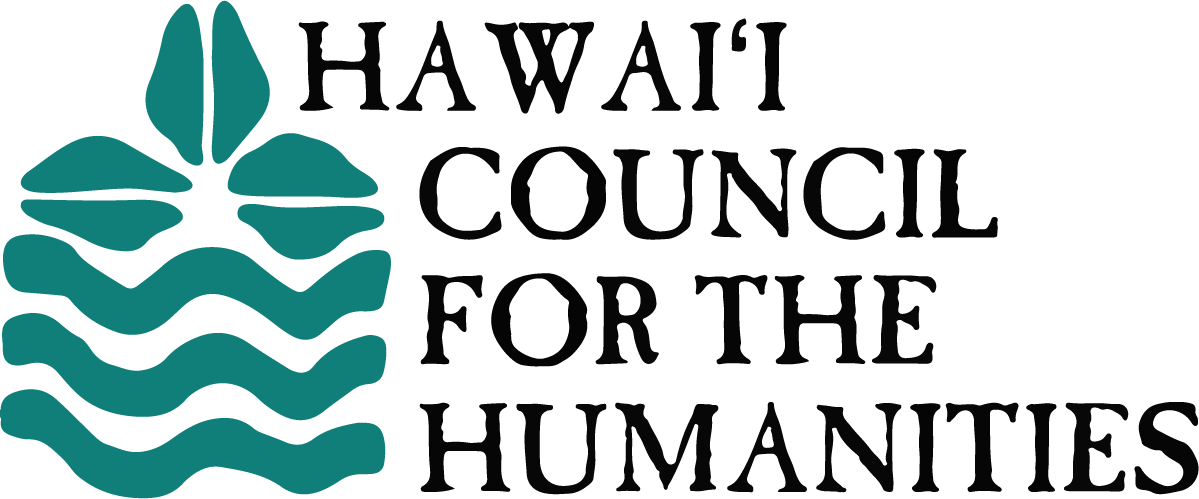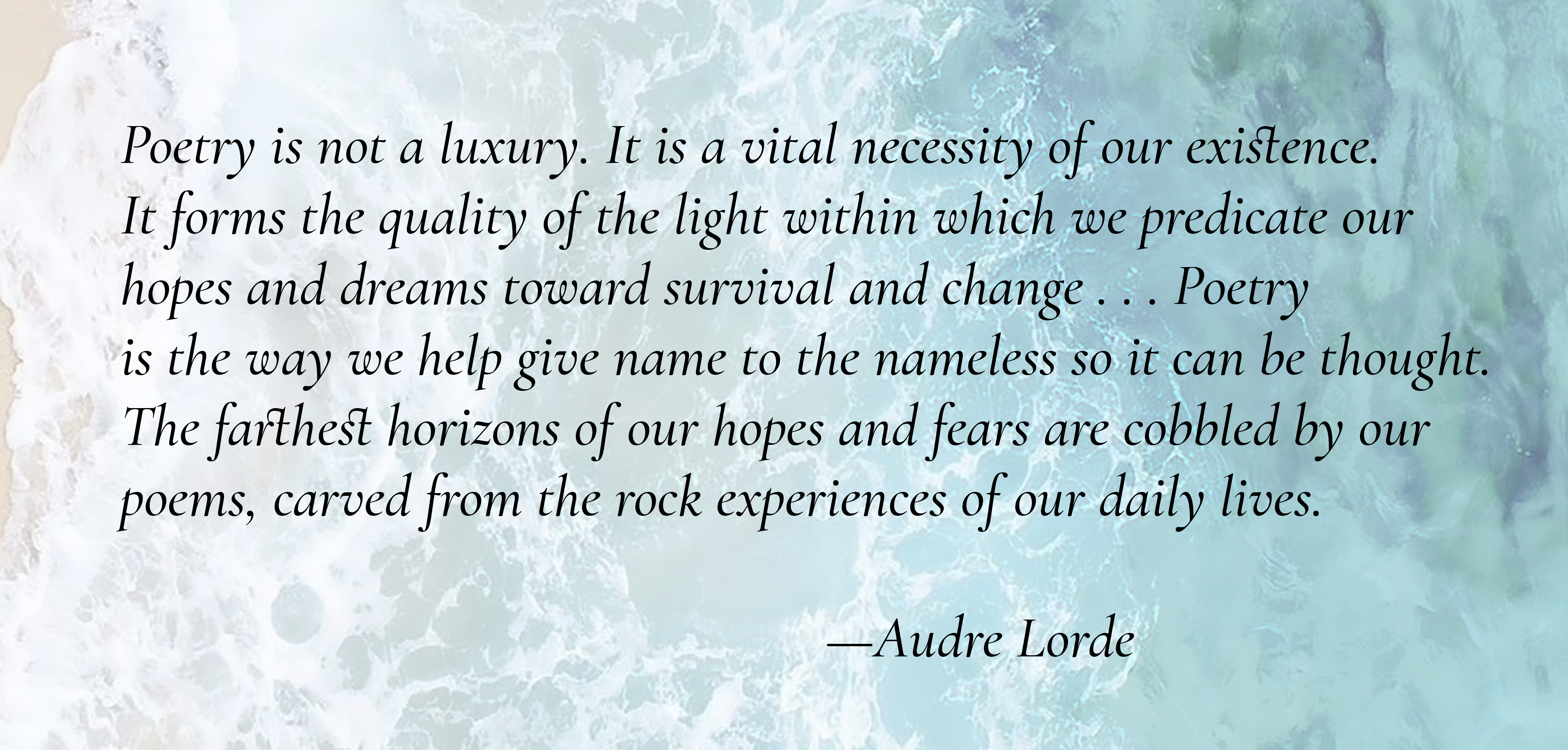As part of the Why It Matters initiative, Hawaiʻi Council for the Humanities presented a series of 8 poetry workshops from February to April 2021 with community poetry leaders from across the islands of Hawaiʻi, which were free and open to the public. Fundamental to this program is the understanding that there is power in words and in the ways we communicate them. Amanda Gorman and her poem gave light to the 2021 US Presidential inauguration. Poetry can bring us to the heart of who we are and illuminate the paths we want to follow.
Hawaiʻi has a long and rich history with poetry. Poets like Imaikalani Kalahele, Dana Naone Hall, Juliet Kono, W. S. Merwin, Puanani Burgess, Haunani-Kay Trask, Joe Balaz, Garrett Hongo, Lois Ann Yamanaka, Eric Chock, Wayne Kaumualii Westlake, Richard Hamasaki, Wing Tek Lum, Tony Quagliano, Lee Tonouchi, Cathy Song, and so many more.
Here were some of our guiding questions for these poetry workshops:
- What does active and interested participation in civic engagement look like?
- What makes a real impact?
- How do we interact with local government processes?
- How do we teach and learn this process?
- How can we build and empower civic voice?
We are so grateful for the abundance we found through these workshops. Each of our facilitators brought a necessary gift towards created spaces that helped courage and creativity thrive. We invite you to read these lesson plans of their workshops, which are designed both for those who want to teach a poetry workshop and also for those who are looking for inspiration for their own writing. Each workshop reflects the poetry leaders who crafted them and brought them to life. Many of these lesson plans are deeply personal and offer wisdom growing from life, writing, farming, teaching, managing, and learning—their common thread: a commitment to community, to civic engagement, to building towards better futures that see space for difficult conversations and committed community.
Our Poetry Workshops:
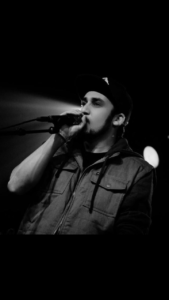
Navid Najafi—I Am I Be
February 24th, 2021
4-6pm (Wednesday)
Taken from Navid’s favorite De La Soul song “I Am I Be,” this workshop encouraged people to share their personal, familial, and cultural stories through poetry and rap. Participants gained effective tools they could use to create simple lines of rap/poetry. Attendees were of all levels and showed marvelous creativity and engagement.
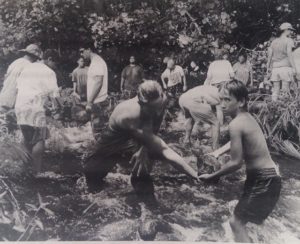
Hanale Bishop—Mapping Survival
March 1, 2021
3-5pm (Monday)
In this “Why it Matters” workshop Hanale talked about how the various philosophies and lifestyle of taro farming can complement the landscape of a person’s creative passions as well as their communal and conscious navigations of civic engagement. Participants learned tools to help them expand the ways they see and describe the world and map their writing experience and process.
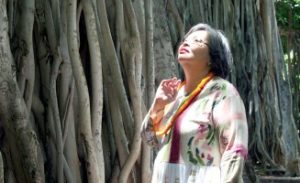
Puanani Burgess (Aunty Pua)—The Role of Poetry and the Poet in Building the Beloved Community
March 11, 2021
3-5pm (Thursday)
In this workshop, Aunty Pua helped participants explore the many roles of poetry as message and messenger, bridge and bridge builder, doorway and boundary, activist and priest. Participants told the story of their names, the story of their community, and the story of their gifts, and practiced seeing the beauty and humanity in themselves and each other.
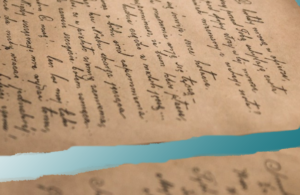 Isabella Pasa and ʻIhilani Lasconia—Between the Letters: Honoring Hawaiʻi through the Voices of the People
Isabella Pasa and ʻIhilani Lasconia—Between the Letters: Honoring Hawaiʻi through the Voices of the People
March 21, 2021
11am-1pm (Sunday)
This was an engaging and interactive poetry workshop that invited participants to use epistolary poetry to identify past and contemporary examples of civic engagement in Hawaiʻi. Participants also practiced writing an epistolary poem centered on the importance of documenting our everyday experiences.
Aiko Yamashiro and Lyz Soto—The Heart of the Matter
March 25, 2021
7pm-9pm (Thursday)
Inspired by youth spoken word and other poets, we explored together how to strengthen our emotional connection and intimacy to large historical events or community issues, as well as develop our own brave spaces where we can speak truth to power.
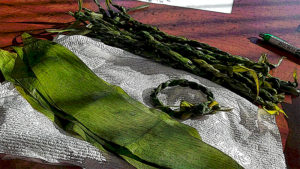 Moira Pirsch—Writing through History: Exploring Complex Identities in Hawaiʻi, Honoring Our Full Selves and Dreaming our Futures through Poetry
Moira Pirsch—Writing through History: Exploring Complex Identities in Hawaiʻi, Honoring Our Full Selves and Dreaming our Futures through Poetry
March 31, 2021
2-4 pm (Wednesday)
Hawaiʻi is home to many different racial and ethnic groups of people. Sometimes it is thought of as a harmonious melting pot of different people. But does the melting pot metaphor really honor the full identities, histories, and realities of all the people who call Hawaiʻi home? How do we make sense of the identities we carry and the realities we find ourselves in?
As a white woman who is not originally from Hawaiʻi, I (the facilitator) find myself grappling with the ways I see myself and the ways I am often seen by others (as Haole), and wonder how to make sense of it. Using writing tools learned in spoken word poetry communities, we talked about how to write and keep writing by creating word palettes, free writing exercises, and exploring the work of other poets. This workshop built upon humanities scholars, who engage with Hawaiʻi’s complex relationship with identity and colonization – and gave space to participants to co-create futures where we honor our full selves and the place we call home.
Carol Ann Carl and Mary Therese Perez Hattori—Witness / Inagofli’e / Kadehde
April 10, 2021
2pm-4pm (Saturday)
In this workshop, we explored ekphrastic poetry—poetry in response to visual image. We were virtual witnesses to images of different spaces and acts of civic engagement. From our act of witnessing, we learned to articulate our own poetic narratives seeded from the emotions or inspirations elicited from the images.
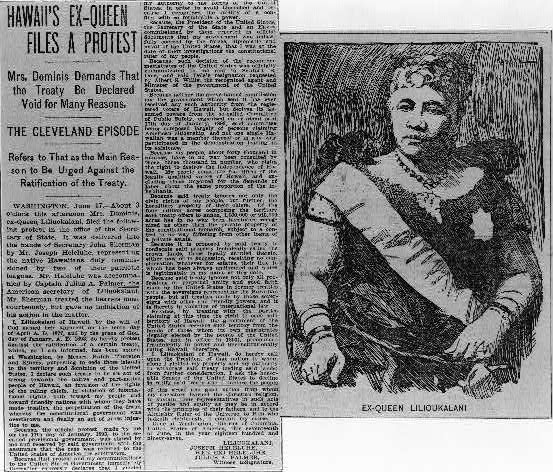 The Merwin Conservancy with M.G. Martin and Sara Tekula—Finding Family Poems: Shared Histories of Civic Engagement
The Merwin Conservancy with M.G. Martin and Sara Tekula—Finding Family Poems: Shared Histories of Civic Engagement
April 15, 2021
4-6pm (Thursday)
In this two-hour workshop, participants explored the power of their family connections to civic engagement, and use their personal heritages as sources from which to create new works that wove a new voice and presence into their lineages. Before we gathered, participants researched their heritage and family history, locating primary source documents from their ancestors’ written histories, including: journals or diaries, newspaper articles (example: an article covering an issue that might have impacted your family), court documents, yearbook quotes or letters. Then, participants were instructed in the art of making a blackout/erasure poem or found poem using these documents. The poet W.S. Merwin’s personal archive and documented history as an environmental activist served as one example. Each participant left the workshop with an original poem sourced from their personal heritage of civic engagement.
Poetry Leader Bios:
Hanale Bishop
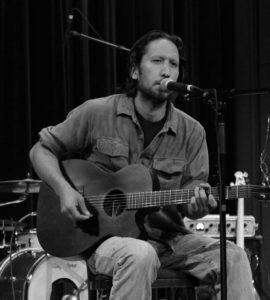 Hanale Bishop is a father, taro farmer, singer/songwriter and sometimes poet. Having grown up in Kahaluu/Waiahole during the Waiahole water rights struggle in the early 1990s, and also during the ice epidemic in Kahaluu thereafter, both of these early experiences led Hanale to a lifestyle of full-time farming, poi making, water rights activism, as well as a commitment of community strengthening and enrichment by way of farmers market cooperatives and land- and water-based awareness. All balanced by a passion for writing and music, to which Hanale is a twice Hokuhanohano-nominated recording artist.
Hanale Bishop is a father, taro farmer, singer/songwriter and sometimes poet. Having grown up in Kahaluu/Waiahole during the Waiahole water rights struggle in the early 1990s, and also during the ice epidemic in Kahaluu thereafter, both of these early experiences led Hanale to a lifestyle of full-time farming, poi making, water rights activism, as well as a commitment of community strengthening and enrichment by way of farmers market cooperatives and land- and water-based awareness. All balanced by a passion for writing and music, to which Hanale is a twice Hokuhanohano-nominated recording artist.
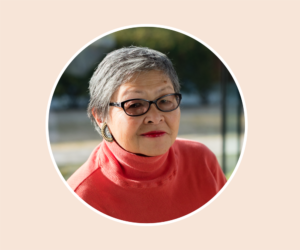 Puanani Burgess (Aunty Pua)
Puanani Burgess (Aunty Pua)
Puanani Burgess is a Zen Buddhist priest, poet and community mediator from Wai‘anae, O‘ahu. Puanani Burgess was once a committed protestor and resister. She developed her skills as a law student to become what she calls a “dragon feeder” – someone able to navigate the complex rules of a large system like government or the DOE the way one might negotiate with a stubborn dragon.
Puanani Burgess is a process designer and facilitator for Building the Beloved Community, a community-building and conflict transformation process based on bringing people face to face for ceremony, storytelling, and healing circles of trust and respect.
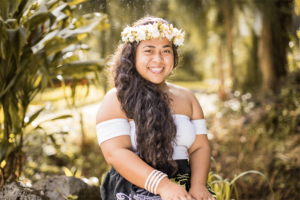 Carol Ann Carl
Carol Ann Carl
Carol Ann (Karalahn) Carl is a daughter of the island of Pohnpei. Birthed by the waters of dahusokole and raised by the kousapw’s of Lehdau and Areu, she currently resides in Kalihilihiolaumiha where she works as the Grants & Development Assistant at Kokua Kalihi Valley Comprehensive Family Services. She is a storyteller, activist and artivist whose collective work KEWERIWER is the canoe that carries echoes of ancestors past and future, rooting her to the home she voyages from.
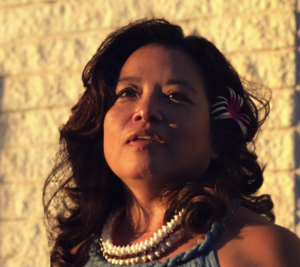 Mary Therese Perez Hattori
Mary Therese Perez Hattori
A daughter of Guåhan (Guam), Mary Therese Perez Hattori is one of nine children of Paul Mitsuo Hattori who was originally of Kalihi, and Fermina Leon Guerrero Perez (familian Titang) of Chalan Pago. Dr. Hattori is Acting Director of the Pacific Islands Development Program at the East-West Center and affiliate faculty of the University of Hawaiʻi. She is a community organizer and advocate for Pacific islanders in Hawaiʻi, author, poet, public speaker, and philanthropist.
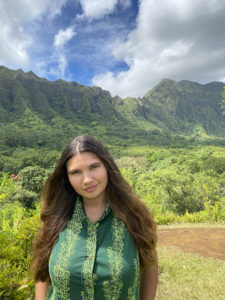
ʻIhilani Lasconia
ʻIhilani Lasconia is a Kānaka Maoli poet from Waimānalo, Oʻahu. She is currently a senior at the University of Hawaiʻi at Mānoa, majoring in Ethnic Studies, with a minor in Political Science and Women’s Studies. ʻIhilani believes that art is foundational to liberation and that spoken word and poetry provide some of the most meticulous documentations of resistance through rhythm, imagery, and capturing the essence of ea through ʻōlelo.
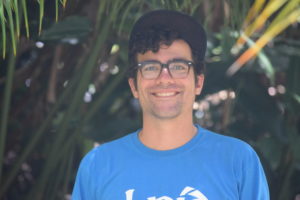
M. G. Martin
A teacher and poet, M.G. Martin grew up on Hawaiʻi island in the town of Waimea. He currently teaches middle school English on the island of Maui and is earning a M.Ed from the University of Massachusetts. M.G. is the author of U U O U (Cyberwit, 2020) and One For None (Ink., 2010). M.G. has performed on stages in San Francisco, Oakland, Los Angeles, San Diego, Portland, Boston, New York City, Seoul, and Honolulu. His poems have appeared in Bamboo Ridge, ZYZZYVA, Tinfish, PANK, and Sink Review, among others. He has been nominated for a Pushcart Prize, led writing workshops for the Red Cross, and was a 2018-19 W.S. Merwin Creative Teaching Fellow. Find him online at mgmartin.ink.
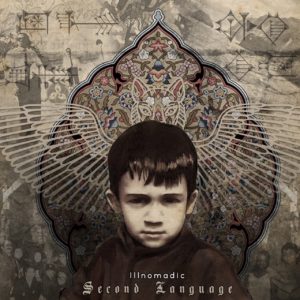 Navid Najafi
Navid Najafi
Navid Najafi aka Illnomadic is a founding member of local conscious rap collective, the Super Groupers, and a two-time Nā Hōkū Hanohano Hip Hop Album of the Year award winner. Born in Tehran, Iran and raised in New York, Najafi found home when he moved to Hawai‘i after high school. Aligned with the core Hawaiian values of Aloha ʻĀina, Najafi has become an active artist, organizer, teacher, mentor and volunteer in the community. As a native Farsi speaker, Najafi considers English to be his second language but discovered that music and art often operate as a universal second language. His style is activated hip hop with lyrics that explore themes of migration, culture, solidarity and home. Navid is currently the Learning Programs Coordinator at the Shangri La Museum of Islamic Art, Culture and Design in Honolulu. He is also the co-founder and an administrator/artist for Soundshop, a hip hop education workshop series at the Honolulu Museum of Art.
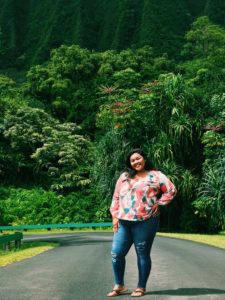 Isabella Pasa
Isabella Pasa
Isabella Pasa is an active ʻŌiwi poet from Pūlama, Koʻolaupoko, Oʻahu. She is currently a junior studying English with a focus on creative writing and poetry at the University of Hawaiʻi at Mānoa. Bella spends her time dissecting and creating different stories through various styles of poetry. Language is the soul of Hawaiʻi—whether we are remembering our history and kūpuna or using it to reclaim our ʻāina as well as ourselves. I believe that as poʻe Hawaiʻi, every time we pick up a pen to write, we are adding more and more strength to the Hawaiian Renaissance by weaving our voices together.
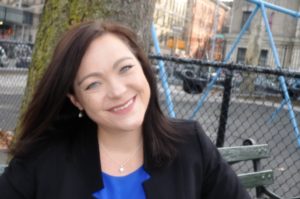 Moira Pirsch
Moira Pirsch
Moira is the Education Director at the Maui Arts & Cultural Center. She is a poet, scholar, and organizer from Madison, Wisconsin. She has over a decade of experience working with community initiatives on social justice, the arts, and education. Her work focuses on the power of the arts to transform, uplift and empower communities. She believes in miracles.
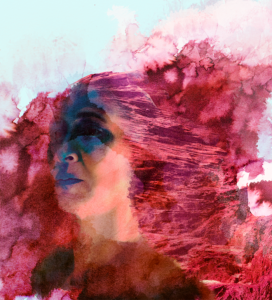
Lyz Soto
Lyz is a page, stage, and visual poet with families from Ilocos Norte, Texas, Alabama, the Visayas, Germany, Guangdong, England, and France. She was born on the Hāmākua coast on the island of Hawaiʻi and raised on the islands of Maui and Oʻahu. She has worked with Youth Speaks Hawaiʻi and Pacific Tongues teaching spoken word and poetry to youth in Hawaiʻi, Aotearoa, Papua New Guinea, and the Marshall Islands. Lyz has had the privilege of witnessing poetry transform people’s lives. She believes in the possibility of better futures for all of us.
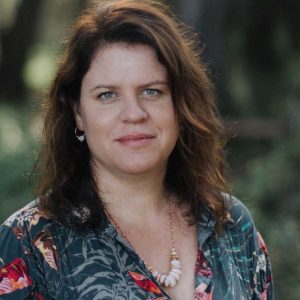 Sara Tekula
Sara Tekula
Originally from Long Island, New York, Sara has lived on Maui since 2004 where she works tirelessly as a mother, writer, educator, media maker, community advocate, and nonprofit leader. Her writing has been featured in Maui Time Weekly, edible Hawaiian Islands, American Forests Magazine, and Green Magazine, among others. Since 2010, she has been a part of the team at The Merwin Conservancy, where she now serves as Director of Programs and Communications, developing public programs and media projects at the intersection of the arts and ecology. She has taught entrepreneurship and marketing classes at University of Hawai‘i Maui College since 2011, co-founded and produced TEDxMaui, and currently serves as a board officer for Montessori School of Maui and Nā Koa Manu Conservation. She holds a B.A. degree in Psychology from the University of Southern California.
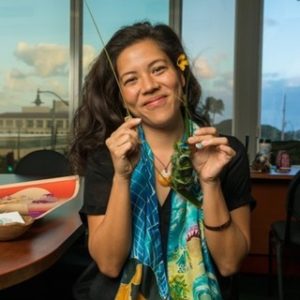
Aiko Yamashiro
Aiko was raised in Kāneʻohe and her families were raised in Kāneʻohe, Puʻunēnē, Yanbaru, and Agaña Heights. She has taught decolonial Pacific literature and community-engaged poetry for the UH Mānoa English Department as well as in partnership with community organizations and events. Her doctoral dissertation that she finally finished in 2020 was on the power of community-engaged poetry, sharing stories of the annual collective collaboration Nā Hua Ea, and a few of the inspiring Hawaiʻi poetry hui who came before and after. Her poetry and essays can be found on Ke Kaupu Hehi Ale, blackmail press, Spiral Orb, and on the radio with It’s Lit with PhDJ. She is thankful for her ancestors and friends who hold her to a high standard of excellence.
